Increased Police Presence in the Wake of Anti-Semitic Hate Crimes Raises Concerns for Some
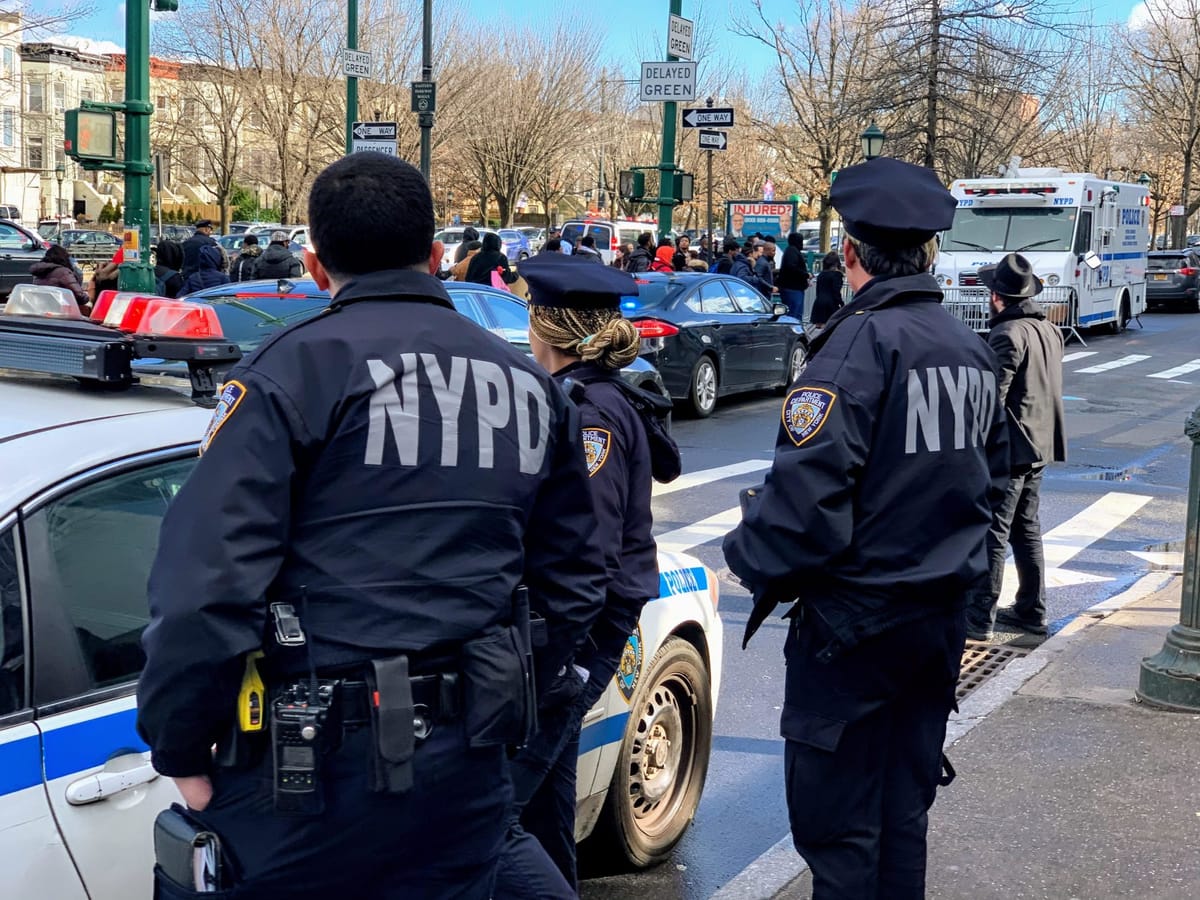
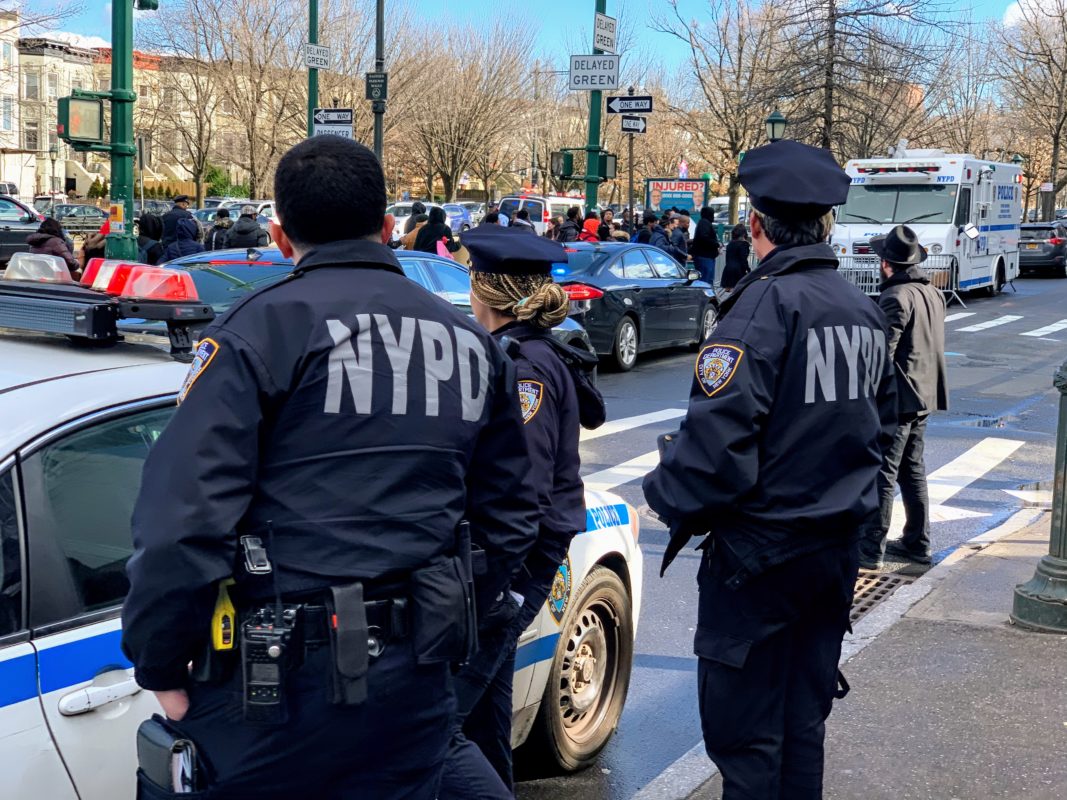
CROWN HEIGHTS – There’s unease among some people of color in Brooklyn neighborhoods slated to receive more cops under Mayor Bill de Blasio’s response to the wave of anti-Semitic hate crimes.
“The rise in anti-Semitic hate crimes is horrible and unacceptable, full stop. It requires community action and more sophisticated, not heavier handed, policing,” Mark Winston Griffith, Brooklyn Movement Center’s (BMC) executive director, told Bklyner. BMC is a community organizing group based in Bed-Stuy, addressing local issues in Central Brooklyn.
Griffith, who was raised in Crown Heights and lives in Central Brooklyn, continued: “Unfortunately, at a time when we’ve seen repeated examples of abusive police behavior and the on-going mistrust of Black and Brown communities towards the NYPD, the increased police presence in Crown Heights makes a historically volatile situation only worse.”
The surge of anti-Semitism across the New York City area includes Crown Heights, which is home to large Black and Jewish communities. In 1991, when existing racial and religious tensions erupted in a riot, many Black people in the neighborhood alleged that the NYPD gave Jews preferential treatment and were racially biased in their policing tactics.
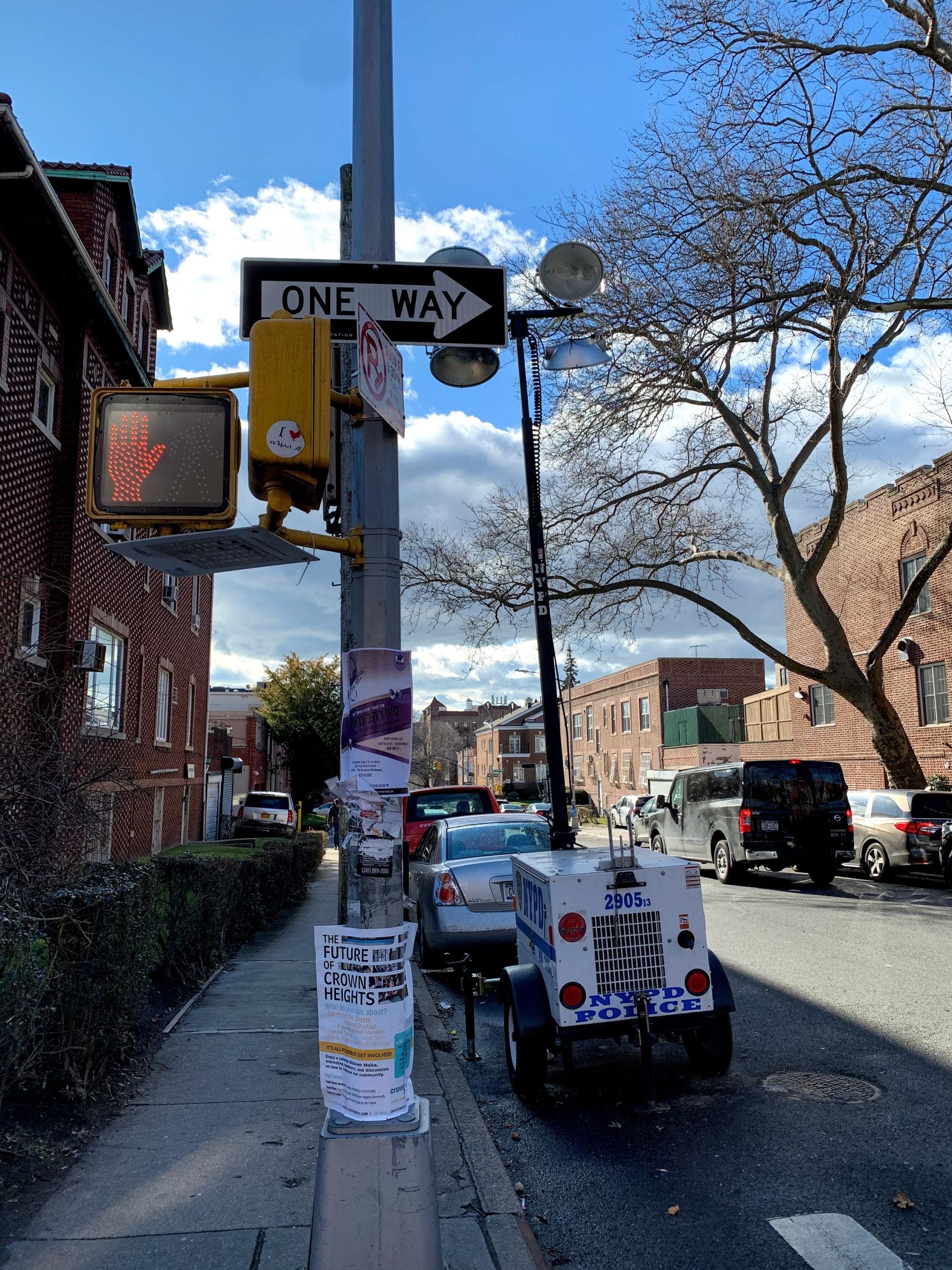
Theodore A. Moore, a policy analyst who worked for former NYC Council Speaker Melissa Mark-Viverito, echoed Griffith’s sentiments.
“The concern, as a Crown Heights resident, is that the historically and currently hyper-aggressive policing of Black folks is only worsened by the increased police presence,” Moore told Bklyner. “The response to the terrible violence against the Jewish community must be centered around providing safety and security for the entire community. The mayor’s plan to increase the police presence trades one neighbor’s safety for the perceived safety of another and threatens the harmony Crown Heights residents have worked to build for decades.”
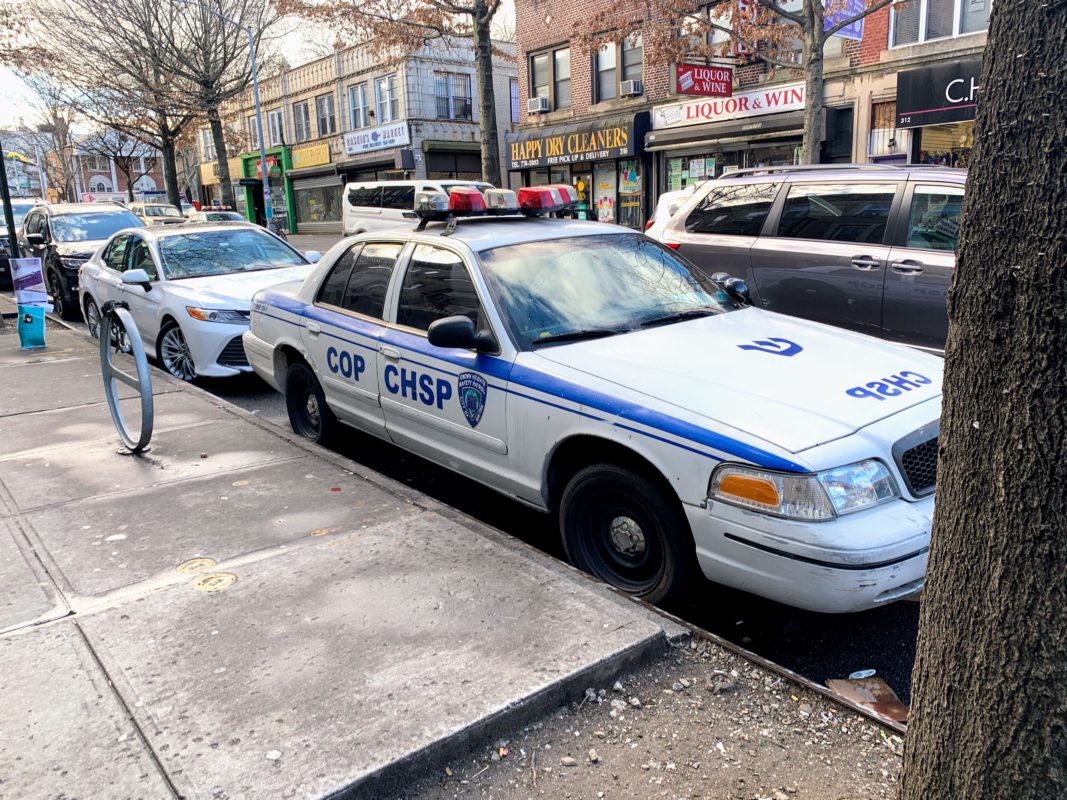
Recent data appear to support those concerns. An analysis of police stop-and-frisk by the New York Civil Liberties Union shows increased use of the tactic from late 2018 through June 2019. Furthermore, “the overall number of people of color who were stopped has increased,” the report stated.
Over the past several months there have been several anti-Semitic attacks in Crown Heights. Last summer, a group of men allegedly threw a rock at a Jewish delivery driver as he sat in his truck at the corner of Brooklyn Avenue and Prospect Place. Days earlier, a man assaulted Rabbi Avraham Gopin, 63, inside Lincoln Terrace Park on August 27. More recently, a group of men was seen on surveillance video throwing a chair and punching an Orthodox Jewish man at Albany Avenue and Lincoln Place about 30 minutes after they allegedly assaulted a different Jewish man on nearby Union Street.
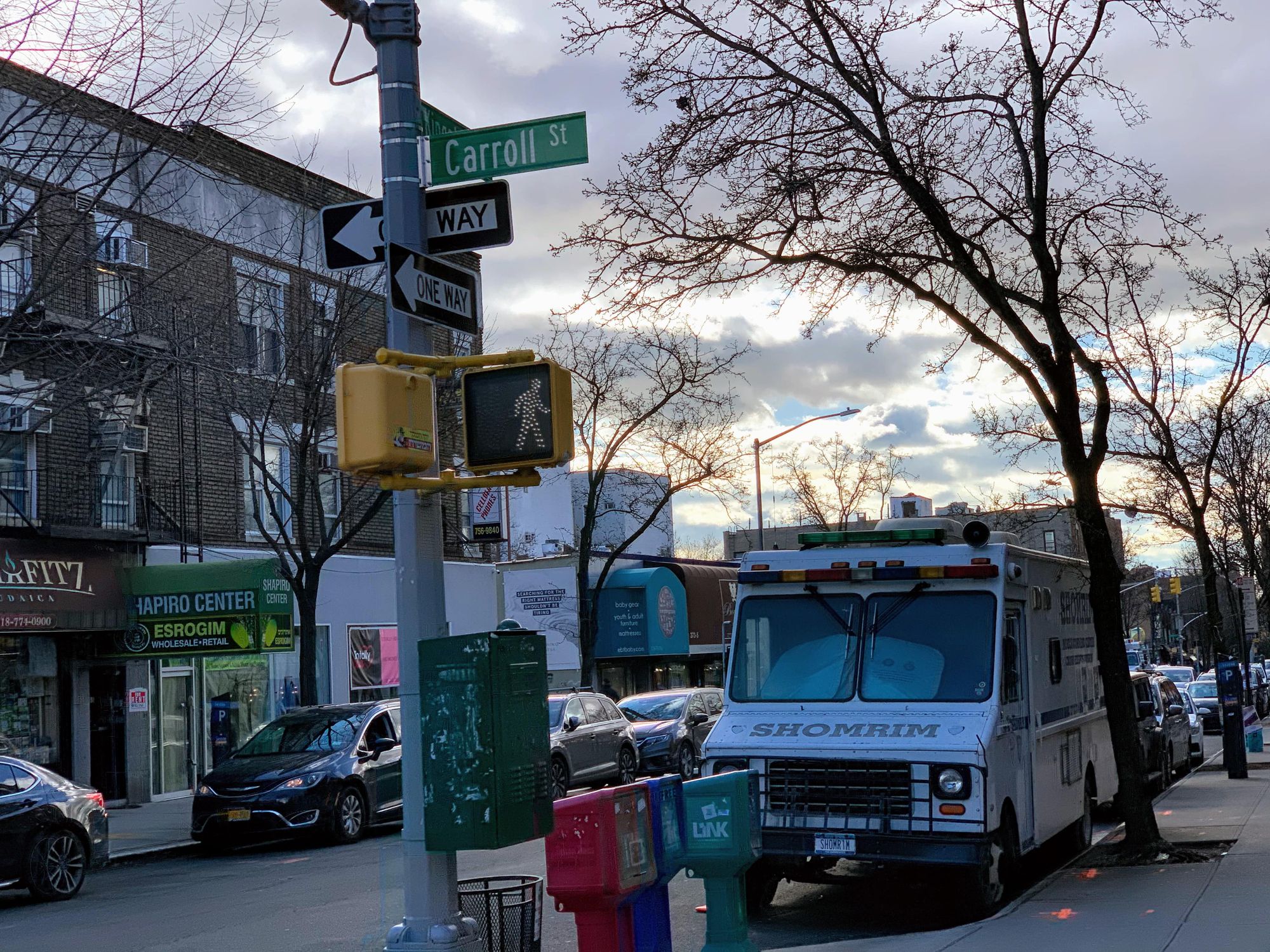
In response to those and other incidents, the mayor announced his plan of action late December to eliminate anti-Semitic hate crimes in New York.
Part of his strategy involves adding four to six officers in Borough Park, Midwood, Williamsburg, Bedford-Stuyvesant, and Crown Heights to patrol Jewish sections of those neighborhoods. The city plans also to install new light towers and security cameras in those communities.
“This situation can be stopped and will be stopped,” de Blasio said at the press conference in December. “It begins with that consistent police presence. It begins with the light towers that have been put in. You will see more light towers, you will see cameras, you will see more police, you will see community patrols. We will keep adding until we resolve this issue.”
At the press conference, the mayor acknowledged that an influx of police officers in neighborhoods like Bed-Stuy and Crown Heights, where there’s a large Black and Brown population, could inflame longstanding tensions over policing tactics, such as stop-and-frisk, which disproportionately target those residents.
De Blasio said the NYPD now has a different approach to policing than it did before he was elected.
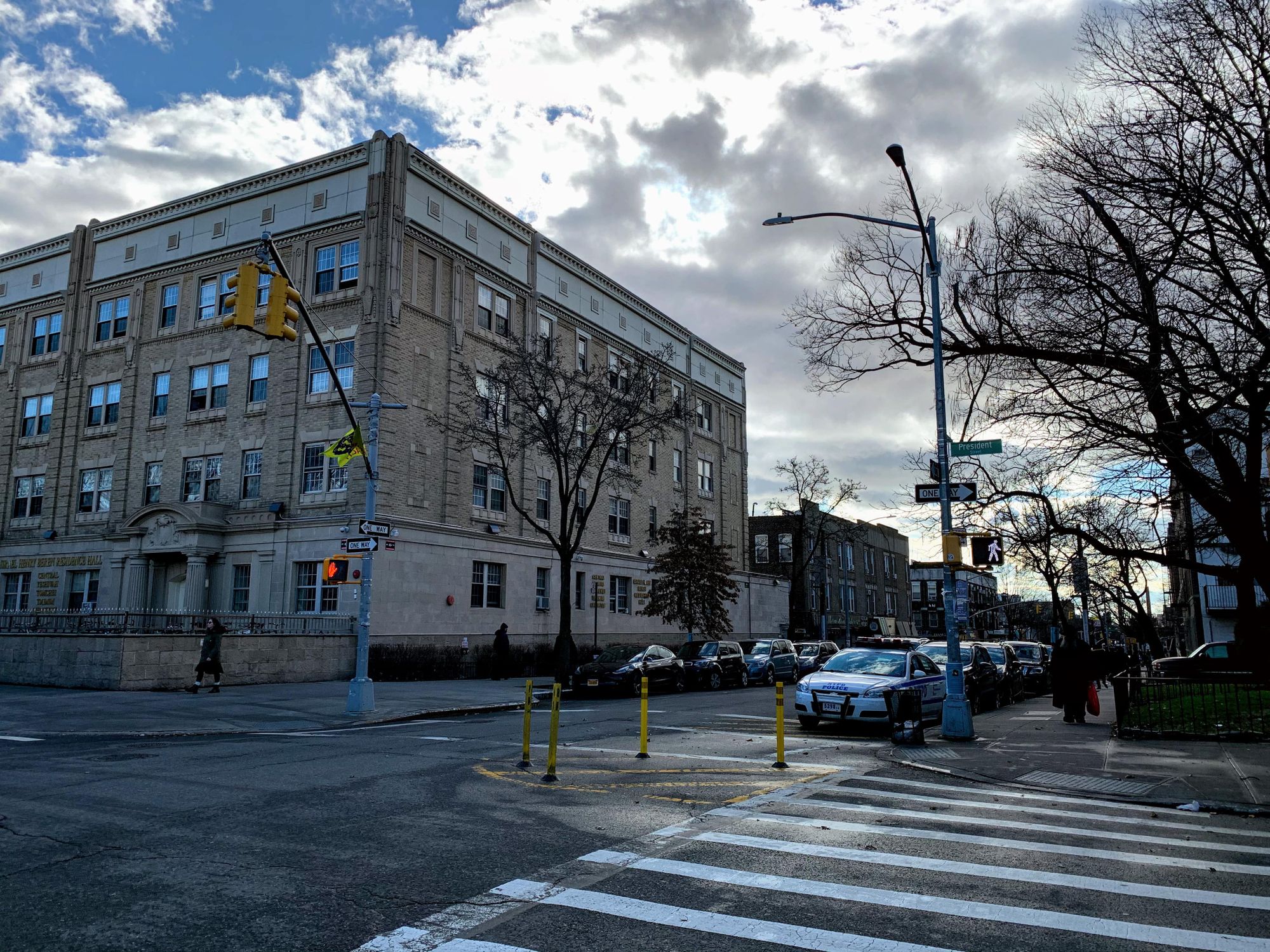
“So, when people see more police presence, it is going to be accompanied by a dialogue and an effort to really connect and communicate about what’s going on and why it’s going on,” the mayor stated.
Under this new approach to policing neighborhoods of color, officers theoretically get to know residents in the community they serve. That would enable them to distinguish possible troublemakers from young men who are not involved in criminal activities, NYPD Chief of Departments Terence Monahon explained to Brownsville residents in October.
“We don’t need to blanket a community and arrest everyone. We know that there’s a small percentage of people who will do the violence,” the police chief added. “The whole concept of neighborhood policing is to give cops discretion. Not every incident leads to an arrest, not every incident leads to a stop.”
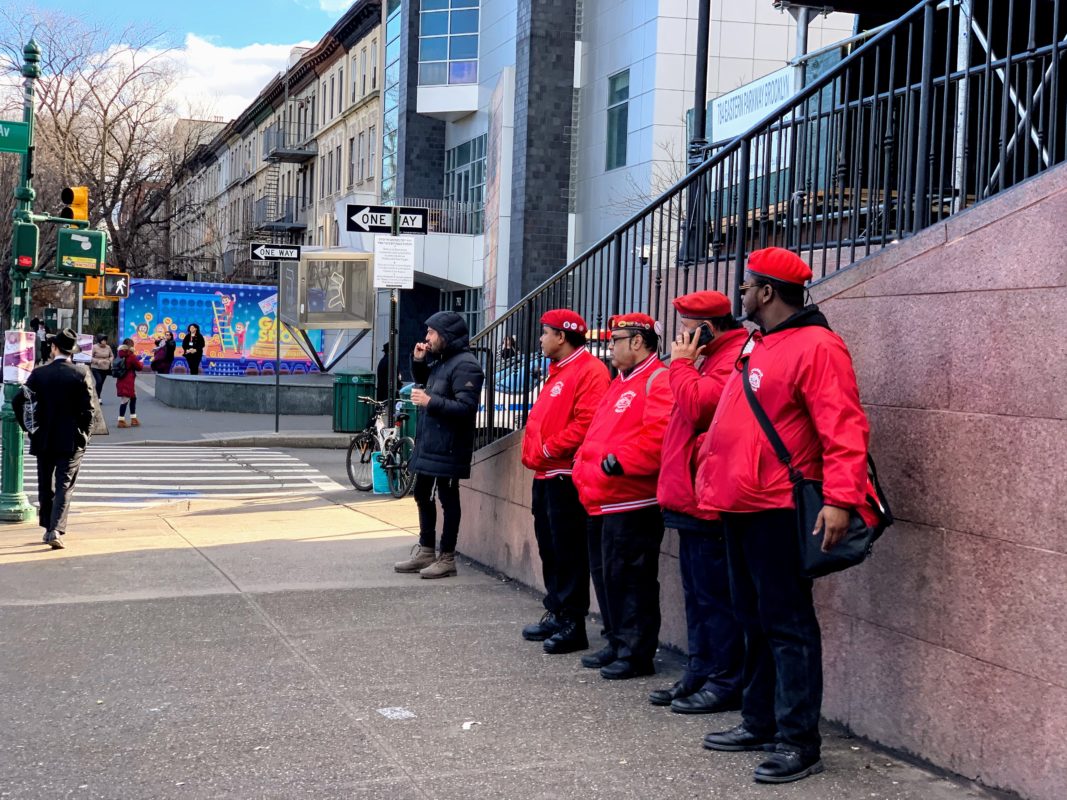
However, doubts and concerns continue about policing tactics in combating the surge of anti-Semitic hate crimes.
“As a community organizer and resident of Central Brooklyn, I have yet to talk to a neighbor who believes that police officers are engaging in a more smart, sensitive, or accountable way. Any so-called reform is little more than public relations window dressing. It represents the kind of cynical, status quo-keeping process that results when powerful institutions are allowed to self-regulate,” stated Griffith, who is also a spokesperson for Communities United for Police Reform.
He calls for law enforcement to “act as supportive peacekeepers, not enforcers of division.”



